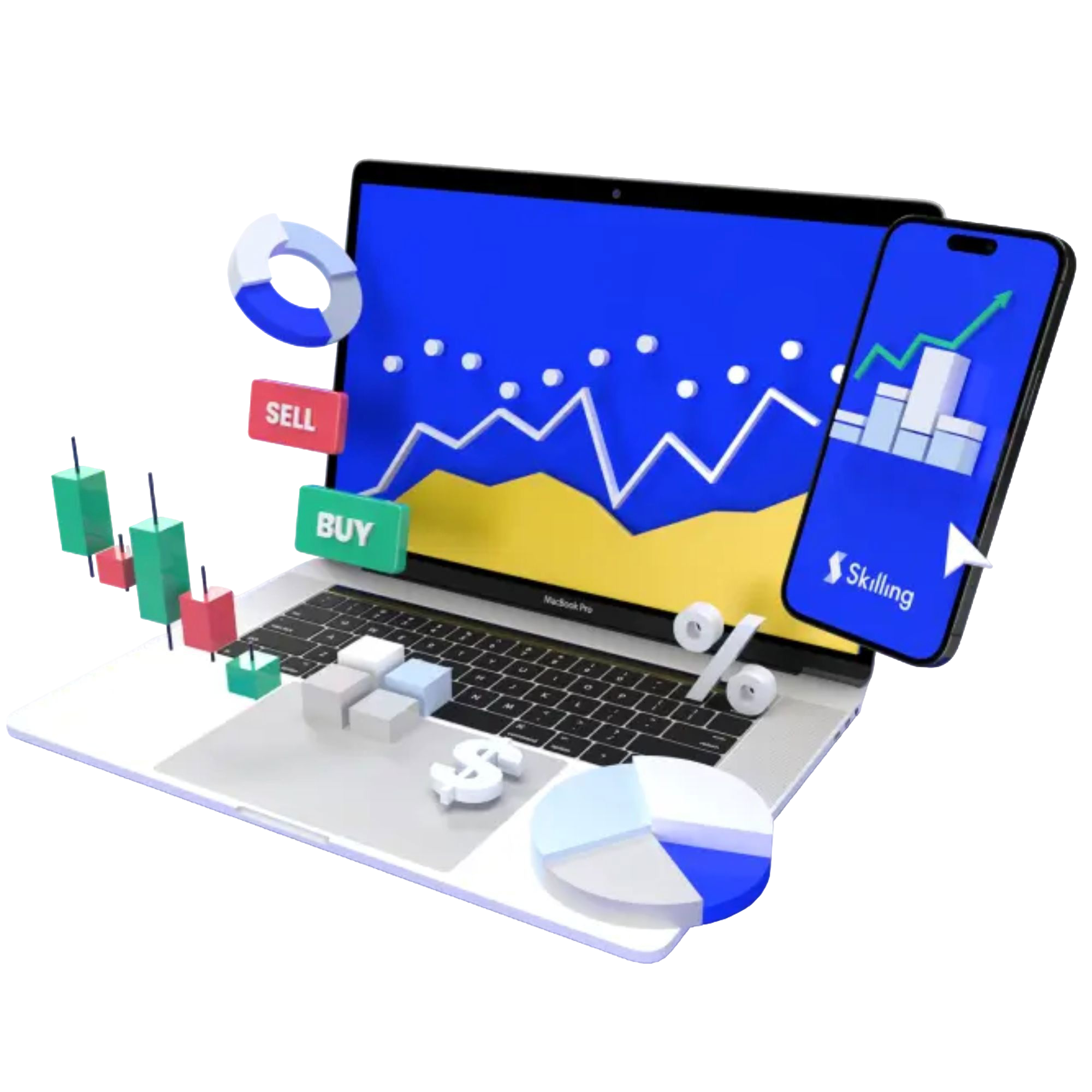
Whenever you see stocks listed with the term “ex-dividend,” it means they are at a specific point in the dividend payment process. The ex-dividend date is important for investors who want to receive dividends, as it determines who is eligible for the next payout. On this date, the stock price typically drops by the amount of the dividend because new buyers will not receive the upcoming dividend. Keep reading to learn more.
Capitalise on volatility in share markets
Take a position on moving share prices. Never miss an opportunity.
71% of retail CFD accounts lose money.

Ex-dividend meaning
Ex-dividend refers to a specific date in the dividend payment process for stocks. Here’s a simple breakdown:
When a company declares a dividend, it sets a date when it will pay out money to shareholders. The ex-dividend date is the first day a stock trades without the right to receive the upcoming dividend. If you buy the stock on or after this date, you will not get the dividend.
To qualify for the dividend, you need to own the stock before the ex-dividend date. For example, if a company has a $1 dividend and the ex-dividend date is July 10, you need to own the stock by July 9 to receive the $1 dividend. After the ex-dividend date, the stock price usually drops by the amount of the dividend, reflecting that new buyers won’t get the dividend.
What is the Ex-dividend date?
The ex-dividend date is the day when a stock starts trading without the right to receive the upcoming dividend payment. Here’s a simple explanation:
When a company announces a dividend, they set several important dates:
- Declaration date: When the company announces it will pay a dividend.
- Record date: The date by which you must own the stock to receive the dividend.
- Ex-dividend date: The first day you can buy the stock and not get the dividend.
- Payment date: The day the dividend money is paid to shareholders.
To receive the dividend, you need to own the stock before the ex-dividend date. If you buy the stock on or after this date, you won’t get the dividend.
What is an example of a dividend payment?
A dividend payment is when a company shares part of its profits with its shareholders. Here’s a simple example using Tesla Inc. (TSLA) to show how it works:
Example: Tesla Inc. Dividend Payment
Imagine you own 10 shares of Tesla Inc. (TSLA). Suppose Tesla decides to pay a dividend of $0.75 per share. Here’s what happens:
- Announcement: On March 1, Tesla announces it will pay a $0.75 dividend per share.
- Ex-dividend date: On April 5, Tesla’s ex-dividend date is set. If you own shares by the end of April 4, you will get the dividend.
- Record date: April 6 is the record date when Tesla checks who owns the shares.
- Payment date: On April 15, Tesla pays out the dividend to shareholders.
How It Works
- Before April 5: If you buy or already own Tesla shares, you will receive the $0.75 dividend per share.
- On or After April 5: If you buy Tesla shares on or after April 5, you will not receive the dividend.
How much will you get?
If you own 10 shares, and the dividend is $0.75 per share, you will get:
- 10 shares × $0.75 per share = $7.50
So, you would receive $7.50 in dividend payments on April 15 if you held your shares on April 4.
Why it matters: Dividends can provide a regular income from owning shares in a company. Investors might choose to buy dividend-paying stocks like Tesla for this additional income.
Practice with a Demo Account
Try our demo account and experience real market conditions.
71% of retail CFD accounts lose money.

Why does the stock price fall on the ex-dividend date?
The stock price usually falls on the ex-dividend date because new buyers are not eligible for the upcoming dividend payment. Imagine you’re buying a ticket for a concert that’s already sold out—if you buy the ticket on the day of the concert, you won’t get in, so the price might drop. Similarly, once the ex-dividend date arrives, investors know that only those who owned the stock before this date will get the dividend. As a result, the stock price typically drops by about the amount of the dividend to reflect that new buyers won’t receive it.
How does the ex-dividend date help traders?
The ex-dividend date helps traders by marking the day when you must own the stock to get the upcoming dividend. Traders use this date to decide when to buy or sell stocks based on dividend payments. For instance, if you buy a stock before the ex-dividend date, you receive the dividend, which can be a profit. Conversely, if you sell on or after the ex-dividend date, you won’t get the dividend but might still profit from price movements. Understanding the ex-dividend date helps traders make better decisions about when to enter or exit positions for potential gains.
Summary
As you’ve seen, knowing the ex-dividend date helps investors and traders make strategic decisions about buying or selling stocks. This date marks when a stock begins trading without the upcoming dividend. If you own the stock before this date, you receive the dividend. If you buy on or after the ex-dividend date, you miss out on the dividend but might benefit from price changes.
Source: Investopedia.com
Want to trade global stocks like Apple, and Amazon and even commodities like Gold - XAUUSD and Silver - XAGUSD with a trusted CFD broker? Open a free Skilling account today.











